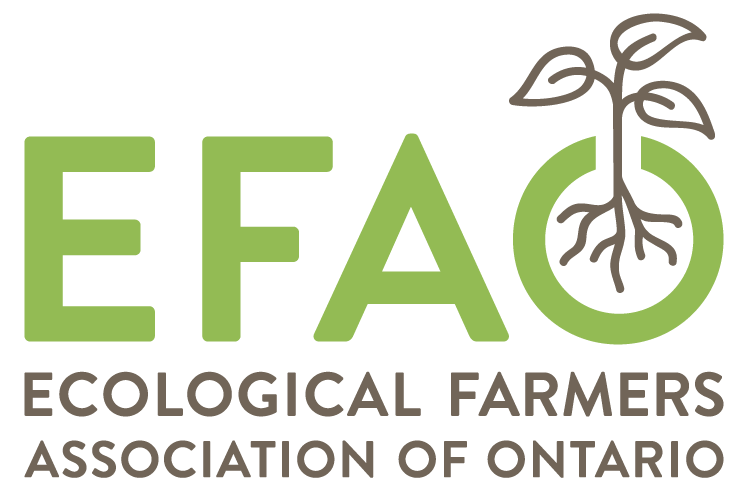

Summary by Erin Richan
According to the grass and livestock farming Guru Joel Salatin, raising pastured broilers is probably the most golden agriculture opportunity for the foreseeable future. The Artisanal Chicken Program, announced in 2015, is directed at those farmers who are interested in growing between 600 and 3000 chickens annually for select target markets such as local farmers markets. Both Fat of the Land Farm owners Andrea and Justin Hilborn and Three Forks Farm’s Eric Blondin are taking advantage of this golden opportunity by scaling up their pastured broiler operation with leased quota. In a morning workshop at the EFAO Conference, both farms brought their financial breakdowns and lessons learned after year one of working with the Chicken Farmers of Ontario’s (CFO) Artisanal Chicken Program.
Keeping tight records is a requirement for the new Artisanal Chicken Program and each participating farm is audited to insure compliance. Luckily for farmers, record keeping is to their advantage in tracking the profitability of an enterprise. Andrea Hilborn was able to break down in detail the average cost per pound of meat, including paying their labour throughout the process. It was encouraging to learn that the new program costs only an extra $0.26/bird to participate, however pricing was a challenge as feed costs rose 30% over the 2016 season, so tight record keeping has been key to adjust for accurate pricing. Andrea also gave some great advice such as including the cost of labour to pay your time but also to know how much to pay a hired hand to raise your broilers.
Marketing was a strong emphasis with both farms. They needed to increase their customer base to match their new production program. Andrea said they invested a lot of time and branched out from their farmer’s market clientele. She attended Health and Wellness Expos at malls and Hudson’s Bay stores for example, to reach a broader audience. Eric’s farm is located in North Ontario, so finding a new customers was a real challenge. Currently, he is selling at the Sudbury Farmer’s Market in summer and for the first time, the North Bay Winter Market in hopes to pay off their investment in the new program. Both farmers also agree that vacuum packaging birds is a necessary investment as it prevents loss due to poor bag tying and freezer burn. Further, vacuum packaging reflects a premium product and is also marketable to retail food stores.
The CFO regulations, protocols, and audits were very informative and helpful for these two participating farms. Addressing biosecurity protocols was fairly simple, for example, both farms used electro netting and clear signage to indicate restricted and controlled poultry zones on their farm. Keeping good health, butchering, and financial records only improved the viability of investing in the new program. Consequently, both farmers had positive experiences and will continue to participate with leasing quota from the Artisanal Chicken program next year.